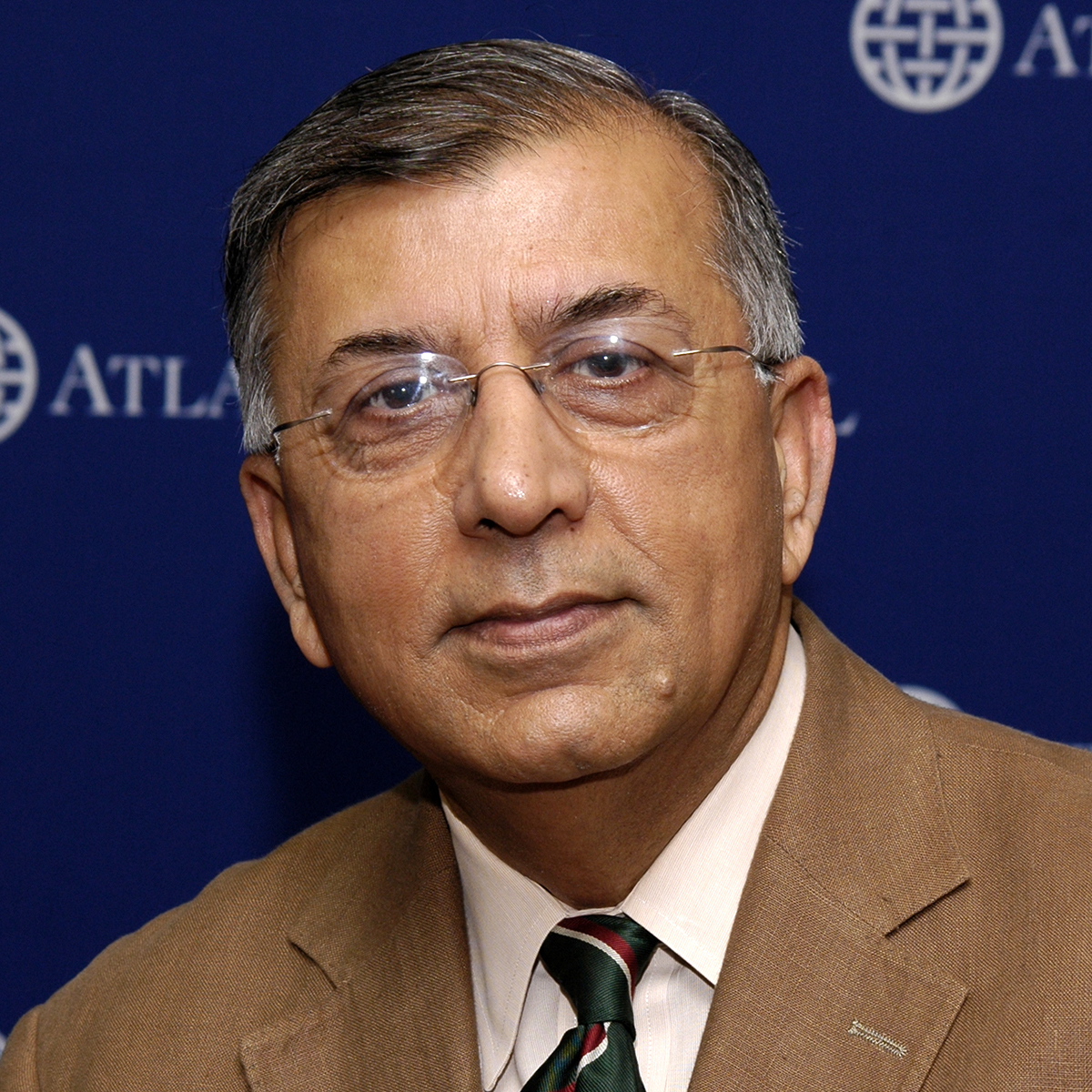
Shuja Nawaz, Director of the Atlantic Council’s South Asia Center, assessed the U.S.-Pakistan Strategic Dialogue in an article titled “The Mountain Yields a Mouse” for the November 8, 2010 issue of Newsweek Pakistan.
The article can be found on the Newsweek Pakistan website and below:
The Mountain Yields a Mouse
It’s time to reassess the Strategic Dialogue.
By Shuja Nawaz From the Nov. 8, 2010, issue
The latest episode of the U.S.-Pakistan Strategic Dialogue ended on Oct. 22, following weeklong discussions featuring 13 working groups on different sectors of the Pakistani economy. There were the usual platitudes. “The United States has no stronger partner, when it comes to counterterrorism efforts against the extremists who threaten us both, than Pakistan,” said Secretary of State Hillary Clinton. But she also admonished Pakistan to get its fiscal policies on track.
This third round of talks produced only one notable result: the provision of a fresh, $2 billion, five-year aid program for the Pakistan military, subject to approval from the U.S. Congress. This was just one of the major items that Pakistan had on its 150-page pa-per of demands from its ally. The civilian side got short shrift. There was no word on a civil nuclear deal (relegated to “private discussions”); improved access of Pakistani exports to the U.S. market; or on India and Kashmir, which Pakistani foreign minister Shah Mahmood Qureshi raised in his concluding remarks.
U.S. officials continued to put the best face on the “useful” discussions. Pakistan’s representatives have trumpeted the promise of President Barack Obama’s visit next year to Pakistan—after he will have been to India first—and a potential invitation to President Asif Ali Zardari to visit Washington. But privately, Pakistani observers and some delegates have expressed their disappointment with the results, and the inability of the U.S. to gauge Pakistan’s needs and deliver appropriate aid. Except for minor amounts devoted to flood relief, most of the Kerry-Lugar-Berman funds have yet to hit the ground in Pakistan. As price takers, Pakistanis appear to have little left to do but carp.
The trust gap between the allies remains. And it will remain so long as the U.S. continues with its policy of carrots and sticks. The Dialogue was preceded by border violations by ISAF helicopters, causing a serious rift that led to the closure of NATO supply routes through Pakistan. Then, the evening before the final high-level meeting, The New York Times reported that the U.S. had decided to invoke the Leahy Amendment and block aid and training for any Pakistani units involved in extrajudicial killings. This preemptive move, despite Pakistan Army chief Gen. Kayani’s public denunciation of such acts and initiation of an internal investigation, rankled the Pakistanis.
Little does Washington realize that its carrots-and-sticks mantra may produce short-term gains, but it also solidifies the view among Pakistanis in general and Pakistan’s generals in particular that the talk of a long-term relationship may be just that, talk. The closed door sessions produced hard talk from the U.S. side, but the Pakistanis did not give way. If this behavior continues, the fourth round of the Dialogue may well be the last unless clear results emerge. Pakistan needs to clearly define its goals and “red lines” for the Americans. Similarly, the U.S. needs to be open about what it can and will do to help Pakistan, and it must recognize Pakistan’s regional position and role. Lingering hope is not the solution for this ailing relationship.
Time is running out on both sides. A faltering civilian government in Pakistan is caught up in debilitating political and judicial battles. The Army lurks in the shadows and affects all political players, both by what it does and does not do. Meanwhile, in the U.S., the administration will likely be weakened considerably after the midterm elections. The mood on Capitol Hill is not in favor of more or larger aid packages for anyone, especially allies considered twofaced. By the time the travelling circus meets in Islamabad next spring, the U.S. presidential campaign will have begun, and the July 2011 deadline for withdrawal of forces from Afghanistan will be looming. Even if all else remains stable, Pakistan will face an uphill task to persuade the U.S. to deliver what it seeks.
Beware too the wild cards in this game of political poker. If there is one more exogenous shock—another U.S. attack in North Waziristan, a Lashkar-e-Taiba attack in India, or a successful terrorist attack on the U.S. mainland emanating from Pakistan—all bets are off.